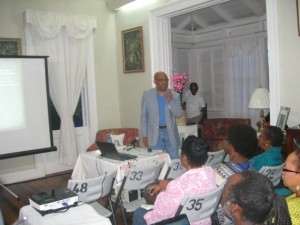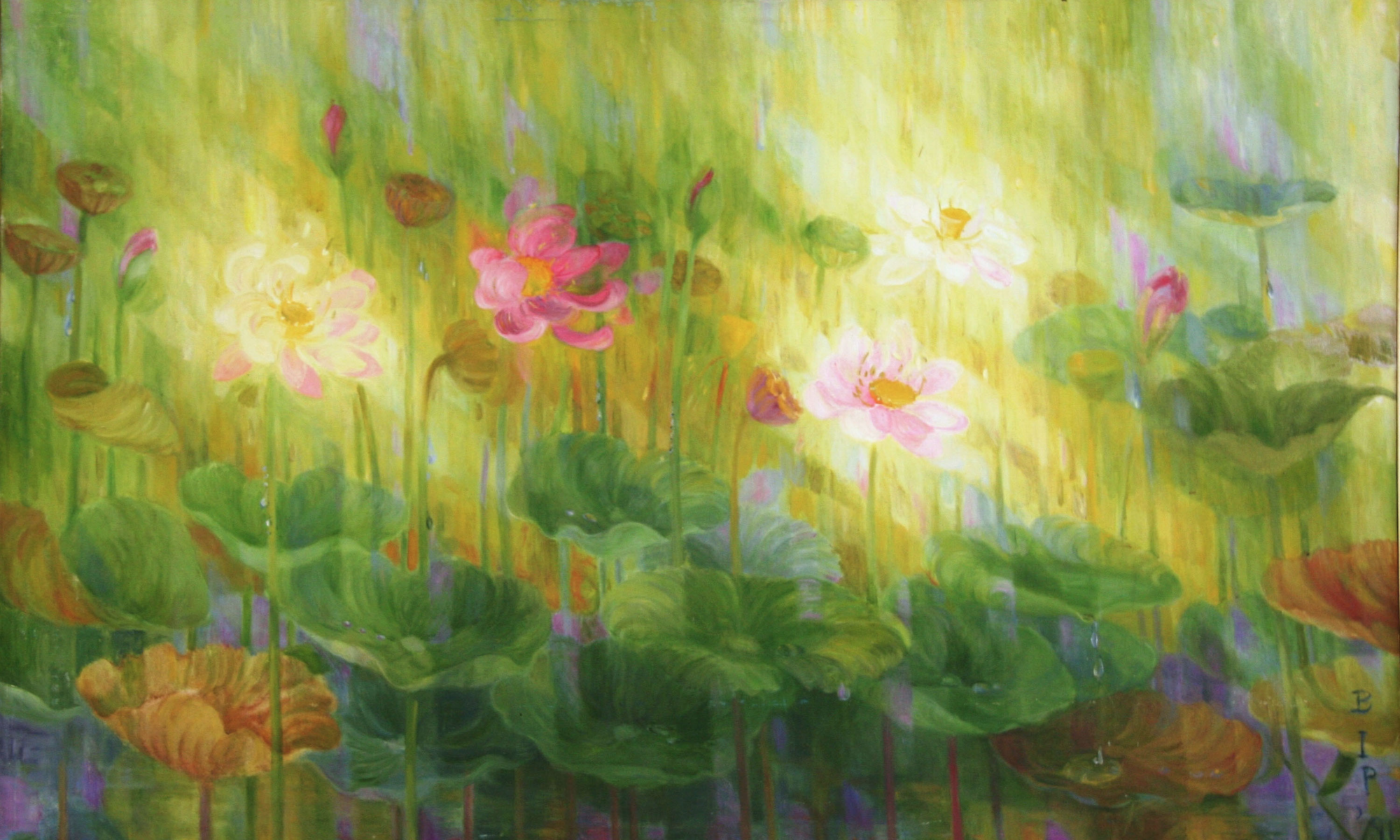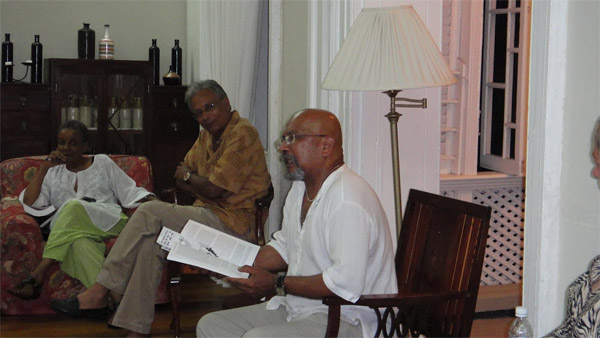Archive: History
Years: 2011, 2012
Professor Clem Seecharan: Reading ‘Mother India’s Shadow over El Dorado’
Wednesday 10th August 2011
This was an informal drawing room discussion with readings by the author from the book. This was a pre-MHT occasion organised by Isabelle de Caires with help from Dr Yesu Persaud and chaired by Vanda Radzik. At Clem’s request, Dr Rupert Roopnaraine introduced Clem and his work.
Press Clippings: Clem Seecharan discusses new book on Indian-Guyanese politics, identity: http://www.stabroeknews.com/2011/archives/08/21/clem-seecharan-discusses-new-book-on-indian-guyanese-politics-identity/
“For more than an hour last Wednesday, Professor Clem Seecharan discussed and read excerpts from his latest publication Mother India‘s Shadow over El Dorado: Indo Guyanese politics & Identity 1890s-1930s outlining to the small gathering at Moray House some significant changes that occurred in the East Indian community during this period. Between the 1890s and 1930s, the East Indian community in British Guiana experienced major political and social changes which Seecharan asserted were significantly influenced by the rise of an Indian intellectual class and the presence of a liberal press…”
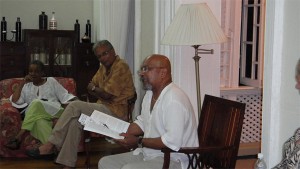
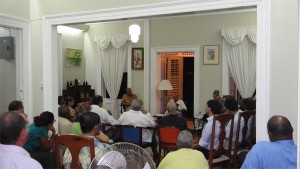
Dr Vibert Cambridge: Music and Social Change in C20th Guyana
Thursday 21st June 2012
Dr. Vibert Cambridge, an eminent Guyanese, currently serving as Professor Emeritus at the School of Medical Arts and Studies, Scripps College of Communication in Ohio University in the USA, gave a talk about the social history of Guyana assessed through its music.
Video Clips
Music and Social Change in C20th Guyana. Introduction
Dr Paloma Mohamed of the University of Guyana and Moray House Trust introduces Professor Cambridge and Ras Kamo Williams plays two short pieces on the steel pan.
http://www.youtube.com/watch?v=mWmZh49KUrI
Part 1: ‘A story that was more than music’: the beginnings.
http://www.youtube.com/watch?v=DyypSQVCRmM
Part 2: Three key concepts: ‘Encounter, Interaction and Exchange’
http://www.youtube.com/watch?v=Ogum-vRRKkY
Part 3: 1900-1953 Mature colonial governance
http://www.youtube.com/watch?v=UkaP0GXW6gE
Part 4: ‘Guyana had a range of musical communities’
http://www.youtube.com/watch?v=SgSj6nE9v08
Part 5: 1930s to 1960s: ‘Bread and circuses model of governance’
http://www.youtube.com/watch?v=x5r5LE0lK24
Part 6: Post-colonial music in Guyana
http://www.youtube.com/watch?v=qpiaatF3POM
Part 7: Conclusion: ‘Music has been a tool in the development process’
http://youtu.be/lHnQernV4a4
Part 8: Questions and comments from the floor
http://www.youtube.com/watch?v=DZurRGFTmBk
